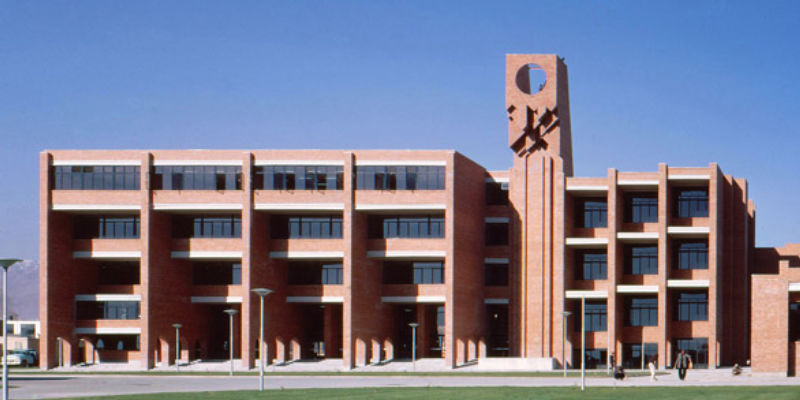

Sharif University of Technology
overview
Sharif University of Technology, often referred to as the MIT of Iran, is a top choice for those who wish to study in Iran. Most of the students who attend this prestigious institution are considered the elite of the country. There is no doubt that the academic level of Sharif University is highly reputable, and students never face any educational difficulties at this institute.
For those looking to study in Tehran, Sharif offers an environment that fosters excellence. As a leading university in industry, modern technology, and applied sciences, Sharif has attracted many international students in Iran, making a significant impact both regionally and globally.
Sharif University of Technology
Sharif University of Technology (SUT), established in 1966 as Aryarmehr University of Technology, is one of the largest and most prestigious engineering schools in Iran, making it a top choice for those who wish to study in Iran. Initially, the institute had 54 faculty members and 412 students selected through a national examination. Since its renaming in 1980, SUT has grown significantly, now boasting approximately 300 full-time faculty members, 430 part-time faculty members, and a student body of around 12,000.
For those looking to study in Tehran, SUT offers a rich academic and research environment. It is known for its strong academic and research capabilities, with numerous specialized research centers that operate both independently and within the broader university system. This structure encourages individual research initiatives while fostering collaboration with industry.
As an attractive option for international students in Iran, the university offers a broad range of academic departments, including those focused on Computer Science, Languages and Linguistics, Islamic Studies, Graphics, and Physical Education. Each department is equipped with its own laboratories, libraries, and workshops, and scholars have the option to take humanities and social sciences courses alongside their technical studies.
In addition to its academic excellence, Sharif University is renowned for its research contributions, having produced a significant number of both domestic and international publications, making it an ideal place for those who wish to study in Iran.
Sharif University’s global reach is reflected in its partnerships with renowned international institutions. SUT has signed memoranda of understanding with universities in Germany, Russia, and Sweden and hosts distinguished international students in Iran, as well as scholars like Joseph Taylor and Thomas Schelling, who have visited and lectured at the university.
Sharif University of Technology Ranking
SUT is highly regarded in global rankings, holding the position of #342 in the QS World University Rankings for 2025, and ranking between 301–350th in the Times Higher Education (THE) Rankings for the same year. It is also tied for #516 in the Best Global Universities ranking by US News.
In addition to its strong global presence, the institute has an outstanding track record in student competitions, having won first place in the student mathematics competition for 21 consecutive years, making it a top choice for international students in Iran who are looking for academic excellence.
Sharif University of Technology Tuition
Full-time studies at public universities are free of charge for all Iranian students; however, foreign and non-Iranian individuals are required to pay fees and tuition. The tuition fees at SUT vary based on the level of study and whether the student is a visiting student. For undergraduate scholars, the fixed fee per semester is EUR €1000, with a fee of EUR €20 per unit.
Graduate students (M.Sc. and Ph.D.) who wish to study in Iran are charged a fixed fee of EUR €1100 per semester, with a fee of EUR €40 per unit. Visiting undergraduate students also pay EUR €1000 per semester and EUR €20 per unit, while visiting graduate students are charged EUR €1100 per semester and EUR €40 per unit.
For those looking to study in Iran, the fees for English-taught programs at the Kish campus are as follows: For the BSc program, the tuition fee is €2,000 per semester for international students in Iran. MSc programs have a tuition fee of €2,100 per semester, also for international students in Iran. Similarly, PhD programs at the Kish campus cost €2,100 per semester for international students.
If you are financially self-supported, you will need to provide a bank letter as part of your application, showing your available funds. Your bank balance should be sufficient to cover at least one year of living expenses in Iran, which is estimated to be a minimum of U.S. $14,000.
Sharif University of Technology Admission
Admission for undergraduates wishing to study in Iran at SUT is tough. Only those obtaining the top 5 percent of scores in Iran’s national entrance examination, carried out by the country’s Ministry of Culture and Higher Education, can enroll. International students are eligible to apply for enrollment.
All applicants must submit their application at least two months before the start of the desired semester through the International Students Office or the Sajad system of the Ministry of Science, Research, and Technology. Non-Iranian students at all academic levels must complete Persian language courses before starting their studies. These courses, which are conducted by the Dehkhoda Institute, last for six months.
If you're coming to study in Tehran or to the Kish Campus, the primary language of instruction at Sharif is English, so there's no need to take Farsi courses.
Admission without an entrance exam is available to non-Iranian students who have not completed their previous education in Iran. Non-Iranian students who have completed their previous education in Iran can only apply for admission without an entrance exam if they were outstanding in their previous level of study.
 Sign In with Google
Sign In with Google